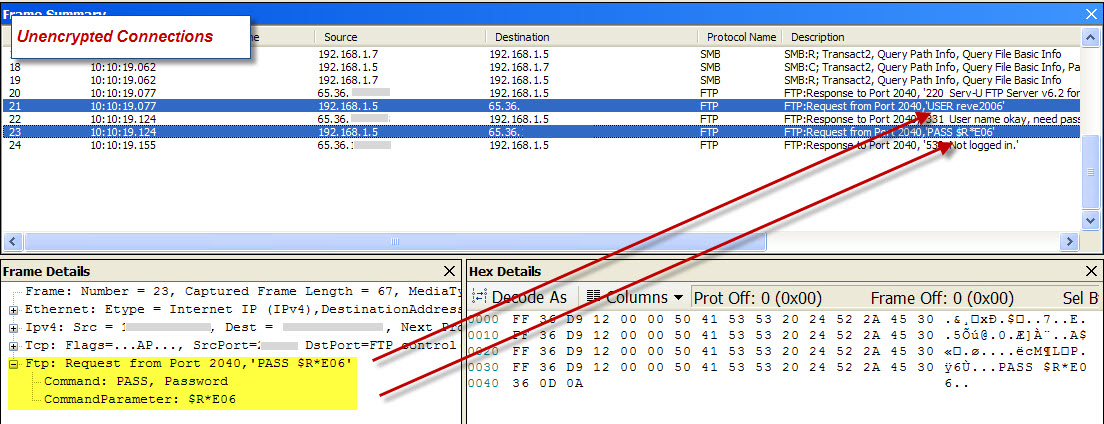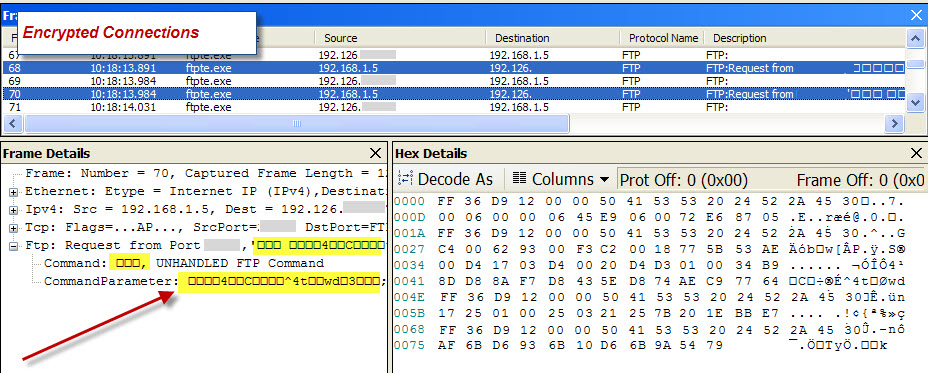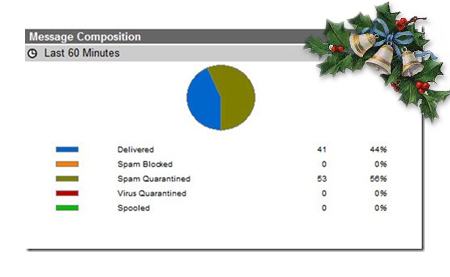I was watching the Today Show this morning and they had a short piece on the NYC’s implementation of free wireless in many of the subway stations in the city. Free Wi-Fi can be found at many businesses today (many food chains are now offering it to their customers; Starbucks, Dunkin Donuts, etc…) and it is often a great convenience to people who are out and about with their iPads and/or their smartphones. But with this simplicity comes responsibility.
What the majority of WiFi users do not realize is just how EASY it is for a hacker to grab your signal “out of the air” and analyze it on their laptops almost instantaneously, as you are browsing the web. So what does this mean? Well if you are checking your emails and are not using a secured connection, bingo! The hacker now has your email address and password. If you are logging into a small ecommerce site to check the status of your order and it is unencrypted, guess what? They now have your username and password to that site. AND if you are placing a new order and entering in your credit card on an unencrypted connection… well I think you know…
There are two tools to help you protect yourself and your data. First when using Wi-Fi connections to connect to your work or to your home computers, if its possible, look to setup a VPN (virtual private network) to make your connections. So as not to get too technical, think of a VPN as a special tunnel on the Internet where only your data can move through – if anyone should try to intercept your data “out of the air”, all they will see are random characters and numbers; basically gibberish.
For those of you that may not have the means to setup/maintain a VPN, the second tool is to make sure your sensitive data connections are using SSL (secure socket layer) protection. (in your browser the website should read https:\www.mysite.com versus a non-encrypted site name of http:\www.mysite.com (does not have the “s” in the http).
This goes for your email servers as well. If you are unsure, definitely ask someone to check it out for you, to make sure your email server is using SSL or TLS.
As a final note, to give you a quick example, below is a free utility that anyone can download from Microsoft and use (click the images to zoom in). While it isn’t exactly a tool a hacker would use to sniff Wi-Fi connections, it does show you how easy these utilities are made, to help read sensitive information. The first screen shot shows a user logging into an unencrypted website via FTP (notice the username and password shown). The second screen shot shows an encrypted connection using SSL.
All that was needed to see the information going across the net via Wi-Fi was to press the Start button on the software. That’s it.
Be wise. be safe.


![]() Rather than rehash the whole article on NPR’s website (see link below), as a CPA I just felt it worth a minute or two to warn our clients that never will the IRS call a taxpayer or business directly out of the blue, UNLESS you have already received written notification from them in the US mail… (also, the IRS does not “sue” taxpayers; another sign that what you are hearing is a scam).
Rather than rehash the whole article on NPR’s website (see link below), as a CPA I just felt it worth a minute or two to warn our clients that never will the IRS call a taxpayer or business directly out of the blue, UNLESS you have already received written notification from them in the US mail… (also, the IRS does not “sue” taxpayers; another sign that what you are hearing is a scam).
 If anyone out there is still using Microsoft’s IE6 browser, this week adds another reason its time to upgrade: POODLE (or Padding Oracle On Downgraded Legacy Encryption). Now that’s a mouthful. It is the most recent technological vulnerability discovered by some engineers at Google. The issue revolves around an older SSL certificate technology (SSL 3.0) and the way data is sent using this protocol.
If anyone out there is still using Microsoft’s IE6 browser, this week adds another reason its time to upgrade: POODLE (or Padding Oracle On Downgraded Legacy Encryption). Now that’s a mouthful. It is the most recent technological vulnerability discovered by some engineers at Google. The issue revolves around an older SSL certificate technology (SSL 3.0) and the way data is sent using this protocol.

 Start 2014 With a Clean Slate!
Start 2014 With a Clean Slate! Do you know who owns and/or controls your domain name (www.MyNameHere.com)? How about the person who administers all your company’s email accounts? (you don’t use AOL still do you???). How about your hosting account? Or who has FTP access to your website?
Do you know who owns and/or controls your domain name (www.MyNameHere.com)? How about the person who administers all your company’s email accounts? (you don’t use AOL still do you???). How about your hosting account? Or who has FTP access to your website?

 Pamela Slaton is by far one of our most interesting clients as she is known as a miracle worker by the nearly 3,000 adoptees she’s helped. After founding her own practice and using a never-quit policy to get around restrictive state laws, she has been able to locate 90% of her clients’ missing relatives, and has earned a reputation as one of the country’s leading investigative genealogists. She helped DMC find his birth parents on Vh1’s Emmy-Award-winning documentary My Adoption Journey, and now facilitates powerful reunions from start to finish on her Oprah Winfrey Network show.
Pamela Slaton is by far one of our most interesting clients as she is known as a miracle worker by the nearly 3,000 adoptees she’s helped. After founding her own practice and using a never-quit policy to get around restrictive state laws, she has been able to locate 90% of her clients’ missing relatives, and has earned a reputation as one of the country’s leading investigative genealogists. She helped DMC find his birth parents on Vh1’s Emmy-Award-winning documentary My Adoption Journey, and now facilitates powerful reunions from start to finish on her Oprah Winfrey Network show.